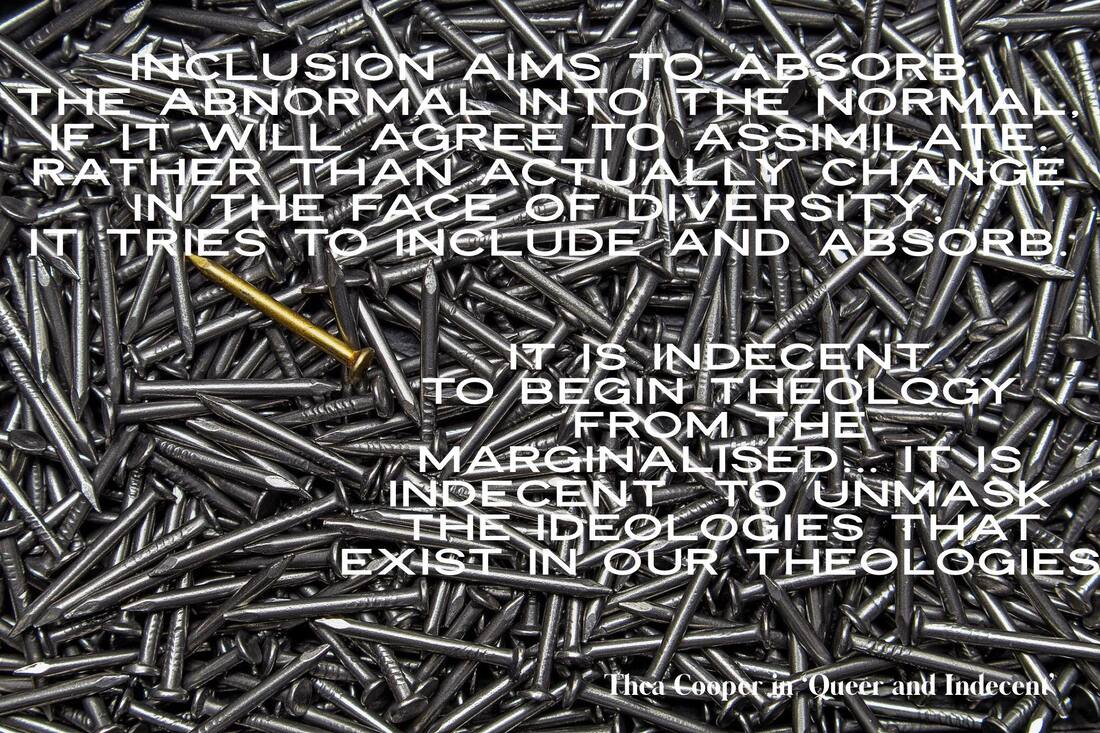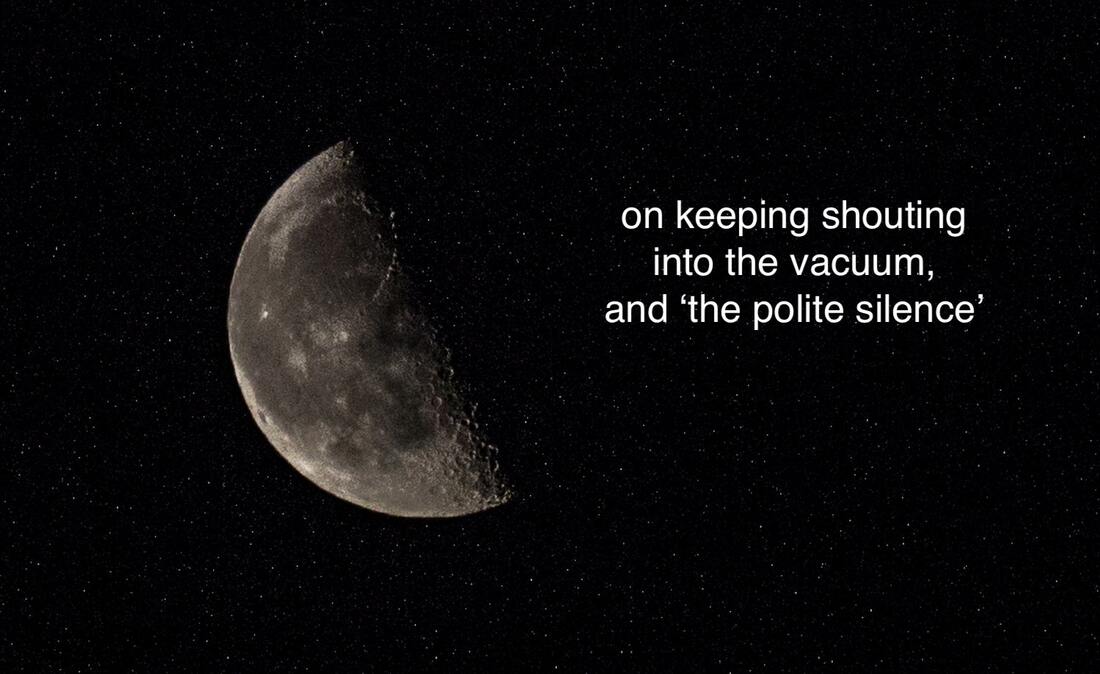|
One of the major challenges for both Faith bodies, like Churches, and for the wider society is taking marginalised people seriously in their/our own right. 'Inclusion' is for example a frequently used term among those who express some interest and support of transgender people. Yet perhaps, as Marcella Althaus-Reid outlined, it is recognising the voices and bodies and socio-economic realities of 'indecency' in people's lives that is the real faith gift and challenge. Too much 'inclusion' keeps the frameworks in place, coopting a few individuals or making a few, sometimes quite superficial, changes. As with meeting the challenges of race, 'cheap grace' is all too easy. Theologically however, was Jesus however about 'inclusion', or constantly speaking, acting, and embodying 'indecency'?
1 Comment
There is simply no healthy future for faith and spirituality without trans (and other TLGBIQ) people - because we are not only central to their future (it is after all ours!) but as we are already present to it and waiting for others to catch up (with patience when we can, but too often with continuing deep frustration). Sadly there are times (too many of them) when it is very tough - not so much to cope with the obvious enmity (though that is hard enough), but, for Christians, the 'polite silence' and 'passive' inclusion of parts of Churches who say they are, or trying to be 'inclusive' and 'affirming'. It does often feel like 'shouting into the silencing vacuum'. Thank God for those who really get it, and who are with us and, actively, help us into speech. Let those who have ears, hear...
As Melissa M.Wilcox put it, in 'Religion is Already Transed: Religious Studies is Not (Yet) Listening': 'Many of us, in various ways, have had the experience of shouting into the silencing vacuum of active ignorance: the practice by which others actively ignore, and thereby choose to remain ignorant about, our lives and the lives of those who struggle. Sometimes, the vacuum is incomplete; enough air remains in the space to carry the sound waves of our speech and allow us to be heard. Sometimes, eventually, we may even be celebrated for our efforts. But such work can come at great cost, and for every one of us who kept standing there, shouting into the vacuum, at least five others have walked away... We must stop the polite silence and gentle questioning that still attends the preaching of transphobia... We have an obligation, all of us, not only to listen for the voices shouting into the vacuum but also to actively disrupt the anti-trans, anti-genderqueer, and blithely cisnormative voices that created the vacuum to begin with. We have an obligation not to be those voices and not to let them go unchallenged. We have an obligation to fill the vacuum with air so that even a whisper can be heard.'  I continue to be flabbergasted (that’s the polite way of putting it) by the attempts of Churches to ‘apologise’ to LGBTIQ+ people whilst continuing to ignore our voices, maintaining shame, and hurting us afresh. The latest astonishing ‘apology’ is by the General Synod of the Anglican Church in Australia - actually ’deploring’ activity which it had itself just demonstrated. NO - this kind of ‘apology’ is not acceptable and represents a mockery of the deep understanding of costly repentance and reconciliation in the Christian tradition. Meanwhile, the Uniting Church - with more credibility but with significant holes in its LGBTIQ+ ‘inclusion’, including a current low level of trans awareness and engagement - has also been pursuing an apology process. This is a much better concept but one in which no transgender people have been included in the ‘apology’ group! (so there’s a first apology to make) A few obvious starters therefore for such ventures: * ‘Nothing about us without us’ * Cheap grace betrays the Gospel * Reparations matter |
AuthorThe Revd Dr Jo Inkpin: Archives
March 2024
Categories
All
|


 RSS Feed
RSS Feed